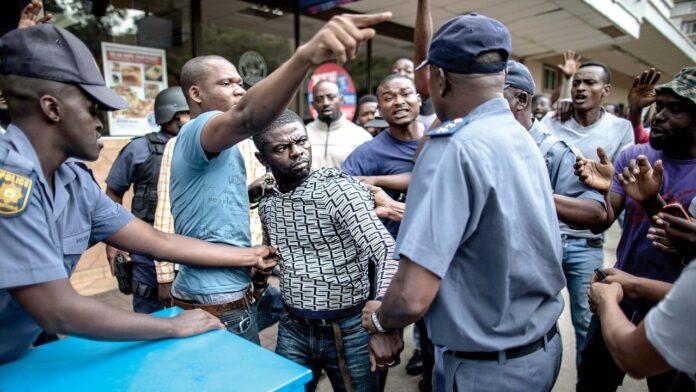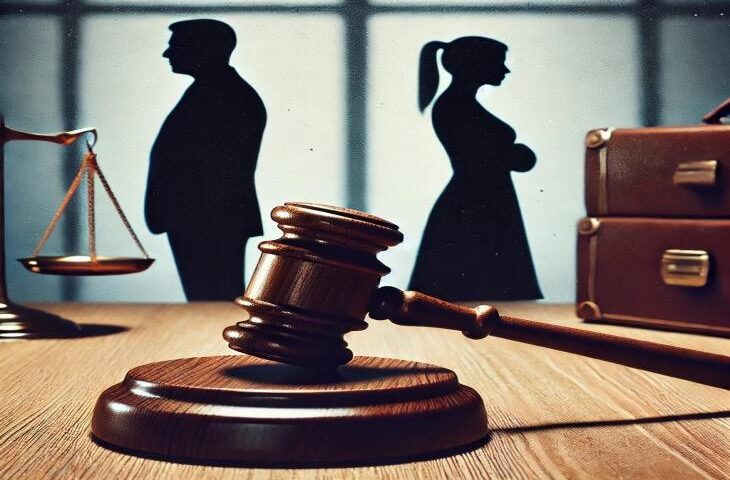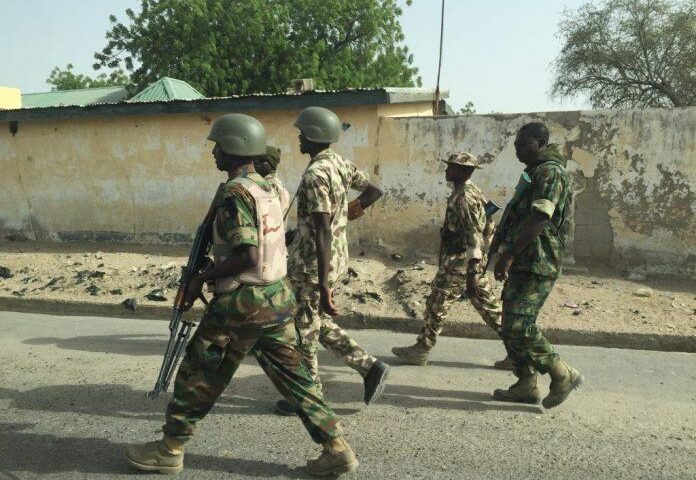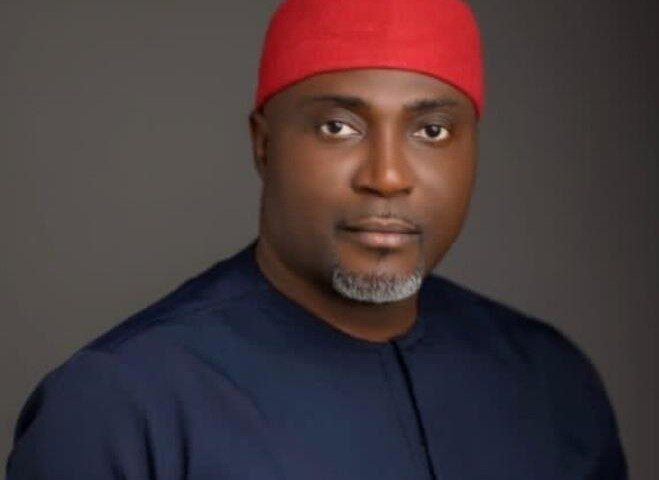President of the Nigerian Citizens Association in South Africa, Frank Onyewekelu, speaks on the recent killing of his compatriot among other issues facing Nigerian nationals in the country. A Nigerian, Mr Julius Chukwunta, was recently killed in South Africa. Can you explain the circumstances surrounding his death?
Frank
Mr Chukwunta was a Nigerian national who lived in an area called Midrand in Johannesburg. The unfortunate incident that led to his death happened on December 7, 2024. Based on th e information we received from his partner, he was coming back from work with his partner. They already drove inside the complex when some guys blocked the entrance. He told them to move their vehicle so that he could have access to the parking lot. They refused, and that led to an exchange of words. When he saw that they remained adamant, he walked towards the estate security post to lodge a complaint. As he walked in that direction, the four guys followed him. They stopped him and a fight started. The four guys pounced on him.
They inflicted heavy injuries on him. When his partner, who was waiting in the car for him, did not see him, she walked towards the security post and saw him on the ground, bleeding. She started calling for help but nobody came. This was for almost an hour, according to her. When there was no help from passersby, she called her father on the phone. Her father came to the scene of the incident. That was how they rushed Mr Chukuwnta to the general hospital on Saturday. He died on Tuesday which was December 10.
Was he shot by the South Africans?
He died as a result of loss of blood because of the heavy injuries on his skull. They hit a brick on his head. This opened a big wound on his skull. As a result of this, he succumbed to death.
Is his partner a Nigerian or South African?
She is a South African lady. Her name is Miss Lumka. What steps did she take after the incident?
She opened a case at the Midrand Police Station. An investigation team was assigned to the case. I must commend their swiftness in tactfully responding to it. With the evidence from the footage from the complex that revealed the car, and the faces of the guys, the police made arrests. They (the suspects) were charged with murder.
We believe in the fairness of justice. It was a life that was taken, and those guys were not supposed to be released on bail. Whether intentionally or unintentionally, they took a life. But we saw that in the proceeding of the court, there were areas where there was a breach of communication between the attorney who was supposed to represent the family and the community and Mr Julius’ partner. They had the right by law to oppose it (bail) or present their lawyers to defend the matter.
That was expected. But they (suspects) were not supposed to be granted bail. Unfortunately, three of them presented their reasons and there was not much persuasion or refusal from the prosecuting counsel. With the little experience I have in the legal and judicial system in South Africa, the prosecutor has the right to refuse the bail to be granted. If the magistrate now overrules the decision of the prosecutor, that becomes a different case. . There might be a flight risk.
Why do you think the suspects are a flight risk?
We realised that three of those four guys were originally from Zimbabwe although they have South Africa’s residence permits and identity documents. This means they are South Africans and Zimbabweans. Granting them bail may risk the possibility of them travelling back to Zimbabwe. If that happens, the case will die. This was where the leadership of the Nigerian community felt disappointed not necessarily from the prosecutor.
Were the four of them granted bail?
Three of the accused persons were granted bail in the sum of 10,000 rand each. The fourth person was also supposed to be granted bail but as of the time of the bail hearing, he had not appointed a legal representative for his bail application. He was advised by the magistrate to formally apply for bail and when he does, there is a possibility that he will also be granted. The case was adjourned till February 2025.
What nationality is the prosecutor?
The prosecutor was a South African lawyer. But the watching brief attorney was a Nigerian. In the South African law system, when a community or a private body is interested in a matter, the law allows for an attorney to be part of the deliberations, especially having a right of communication and the right of briefing. One of our Nigerian attorneys was standing as watching brief over the matter. In that case, the family of the victim and the Nigerian community in South Africa suffered because a large number of Nigerians have been victims of cases like this even in the hands of the authorities. That was where our pains and grief came from. Have there been other cases like this in which Nigerians were killed without getting justice?
In fact, I’m working on trying to stand before the Senate or the House of Representatives to tell them about many of these sad experiences we have had. I want to make a formal report to the high commission and the consulate. If I have to be specific with you, between November last year and December this year, we have had between 15 and 20 Nigerians who have died under this similar kind of death that could have been avoided.
Let me mention just a few. Last week, a young Nigerian man was buried in Cape Town. He was arrested by the police authorities. He died in the holding cell due to the injuries inflicted on him by the police. Earlier this year in May, I drove to Northern Cape, another province in South Africa, which required a six-hour drive to report a case to the commissioner of police. The case was about police officers who searched his house and suffocated him while trying to search his house. He died in the hands of the police. There was an autopsy report, and they refused to give it to us. Another Nigerian died in Johannesburg in the hands of the police. I was there at the scene of the incident and at the police station where he died. Nigerians came out en masse to protest.
Have you been able to reach out to the high commission and the consulate about all these atrocities by South Africans?
We have tried to reach out to the government through them but they have not done enough. I understand the diplomatic ties and procedures. But, I’m expecting more steps to be taken by them such as media briefings to let South Africans understand that our lives matter. A person is considered innocent until proven guilty. When they arrest anybody, we are not stopping them from letting the person face the wrath of the law if found guilty. But we are against letting Nigerians die through intimidation and brutalisation in the name of hatred against Nigerians.
Many Nigerians have died and their bodies repatriated without their families knowing the cause of their deaths. This is why our government needs to come to our rescue. We want the Nigerian government to address this with the South African authorities. The Presidency and the Ministry of Foreign Affairs should understand that we are not just making up these stories. There is evidence. There are cases with the police and the courts lying there without being attended to and with no legal representation to fight for justice.
Is it true that South Africans attack Nigerians because they think Nigerians take their jobs and marry their ladies?
To be emphatically clear about this, xenophobic attacks and hatred for foreign nationals in South Africa are not only against Nigerians. There is a kind of general hate for foreign nationals whether Africans or Westerners by South Africans, but Nigerians are on top of the list. I may not be able to explain what led to the hatred but the allegation that Nigerians are taking up their jobs is false. Well, in terms of marriage, when love happens, love happens.
Nigerian men are lovable and caring. They know how to take good care of women. That is the reason I think South African women prefer Nigerian men to their men. But when it comes to jobs, that’s not true. I can tell you that 90 per cent of Nigerian men in South Africa are self-employed. They build their companies, develop their businesses, and grow their careers. They also employ some of these South Africans to work with them. You can only count a few Nigerians who work for the government or industries.
Nigerians are mostly into business; they are medical professionals, lawyers, and others. Some are students, and others are involved in carpentry and hair styling. They open their shops. Statistics have proven that the percentage of South Africans in employment is higher than the percentage of foreign nationals put together. But still, you will hear complaints that they are taking their jobs. This rumour has been carried by South Africans who probably are lazy or trying to put up a defence or an excuse for their loitering around and not being serious about getting something to do.
How do you ensure Nigerians live safely and get justice?
Our position is that somebody doesn’t have to die because he committed a crime. If there is a crime committed and the person is found guilty, we are not excusing anybody because in some of our programmes we also educate the Nigerian community on the rule of law. We educate our people on the requirements of South Africa in terms of residence permit. We orientate them on how to get proper documentation to live in the country, and how to engage in legit businesses, handwork and others so that you don’t find yourself on the wrong side of the law. We carry out workshops, seminars, teachings and educate our citizens on all of this.
As you know, Nigeria is a country where you have Hausa, Igbo, Yoruba, Niger-Delta people, or the South-South and others. So, we have all these associations here. However, what happens in some cases is that we do have what we call a town hall meeting. A town hall meeting brings together the leadership of all of these associations, either at our consulate office or at our high commission. The leaders of these associations have been addressed by our diplomats, by our ambassador or consular, consul general on the developments and the situations on hand. And then the leadership will go back to the grassroots to meet their various association members.
Source: Punch





